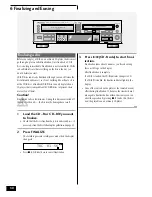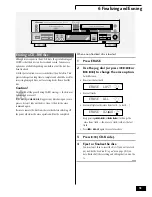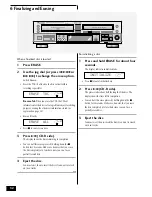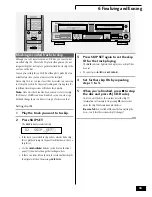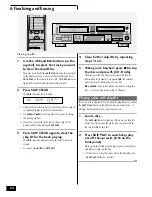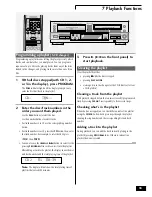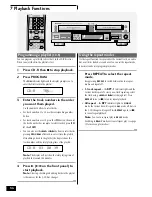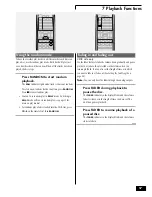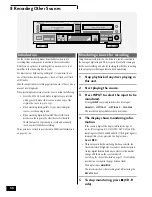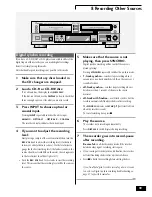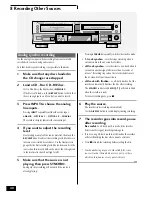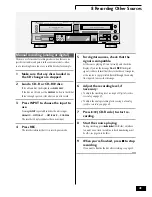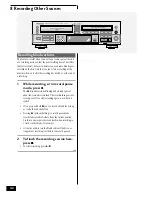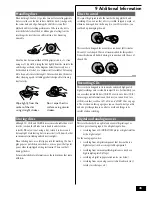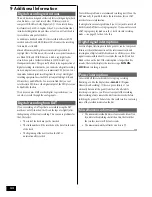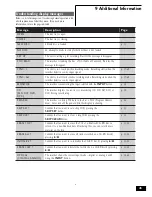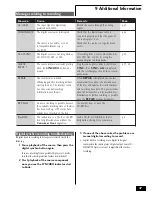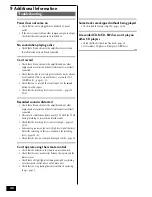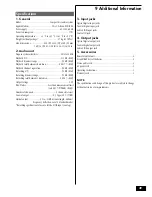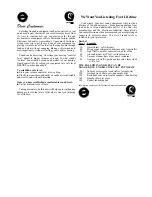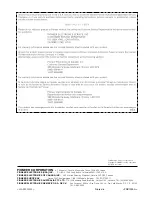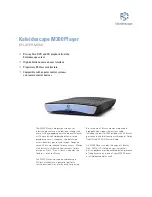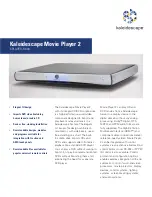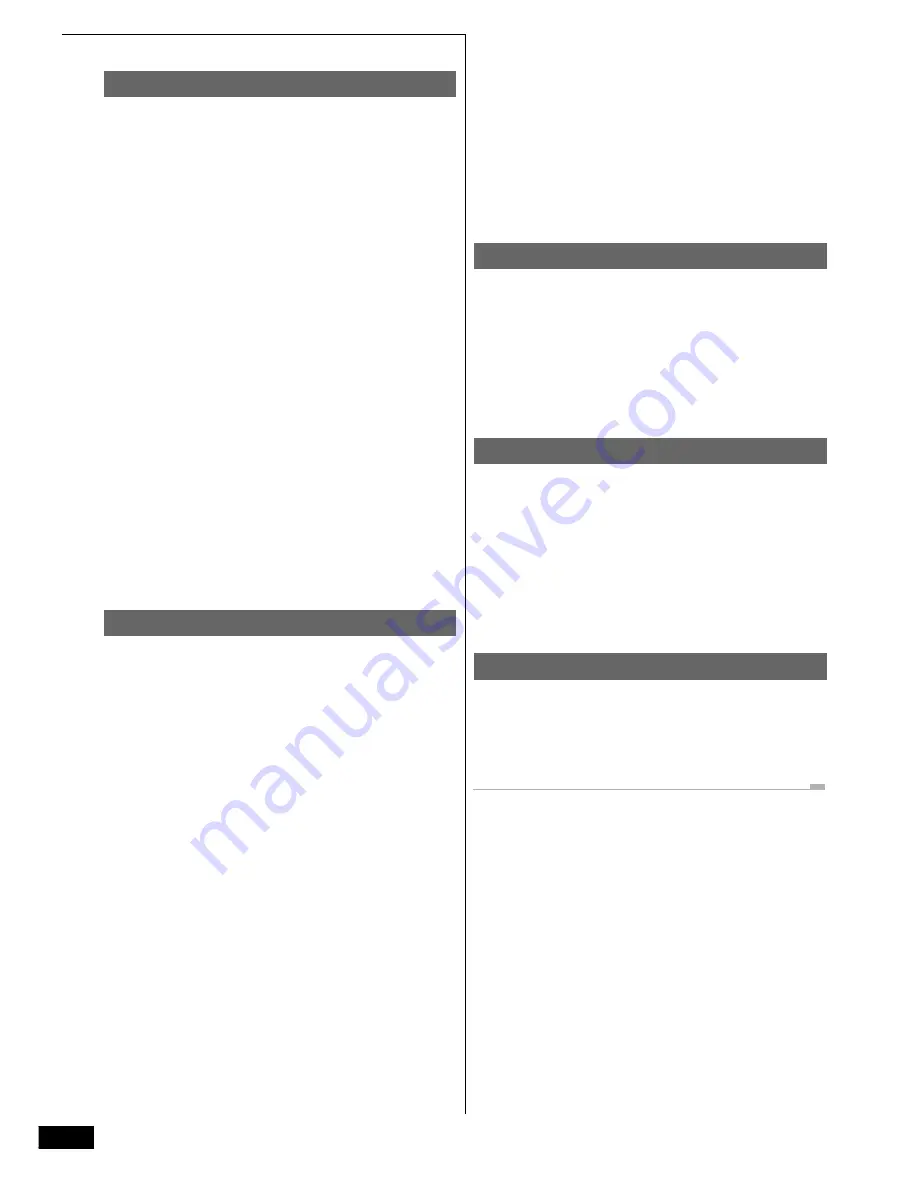
44
9 Additional Information
Digital recording restrictions
This unit has been designed exclusively for recording and playback
of audio discs — you can’t record other CD formats, such as
computer CD-ROMs or Dolby Digital (AC-3). If you record from a
disc format such as CD+Graphics, Video CD, or other format that
includes both digital audio and video or text, you will only be able
to record the audio part of the disc.
In addition to standard audio CDs, this recorder will record DTS
encoded audio CDs and HDCD format CDs. However, the recording
level must be set to 0dB.
Almost all commercial digital source material is protected by
copyright laws. For this reason, this recorder uses special consumer-
use blank CD-R and CD-RW discs on which a copyright fee has
already been paid. A further restriction is SCMS (Serial Copy
Management System). This generally allows just one generation of
digital recording. In other words, you can make a digital recording
from an original source (such as a commercial CD), but you can’t
then make further digital recordings from that copy. Most digital
recording equipment uses the SCMS system, including CD-R and
MD recorders, and DAT decks. You may also find that you can’t
record certain DVD discs as the digital output of the DVD player can
be disabled by the disc.
If you do encounter SCMS or other digital-copy restrictions, you
can always record through the analog inputs.
Digital recording from DAT
If you’re recording a DAT tape that was recorded using the DAT
machine's auto ID function, the IDs on the tape are slightly after
the beginning of the actual recording. This can cause problems for
the CD recorder:
• The start of the track may not be recorded.
• The track number will be recorded on the disc after the start
of the track
• The beginning of the next track on the DAT is
unintentionally recorded
To avoid these problems, we recommend recording start IDs on the
DAT manually, if possible. Refer to the instructions for your DAT
recorder for more information.
You might also encounter problems if you try to synchro-record all
tracks from a DAT that is set to program play. If you want to record
a DAT in program play mode, use the 1-track synchro recording
mode — see page 39 for how to do this.
Digital signal interruptions
Sources of signal interruption include power or source component
failure, accidental disconnection of the interconnect cord, and
interruption of digital satellite broadcasts. In all these cases, if the
signal resumes within about five seconds, the result will just be a
blank section on the disc. If the interruption is longer than five
seconds, the recorder displays the error message:
D.IN UN-
LOCK
and recording is paused.
Power interruptions
Never switch off this recorder while it's copying, recording,
finalizing, or while the display shows
PMA
REC
(Program
Memory Area Recording). If there's a power failure, or you
accidently disconnect the power from the wall outlet while
recording is in process, you'll lose at least part of the recording.
After recording, always remove the disc from the recorder before
switching the power off. Failure to do this could result in you losing
some of the recorded material on the disc.
Miscellaneous information
• The minimum recordable time is four seconds. Even if you
try and record something shorter than this, the track that
the recorder creates will be four seconds.
• The maximum number of tracks on a disc is 99.

